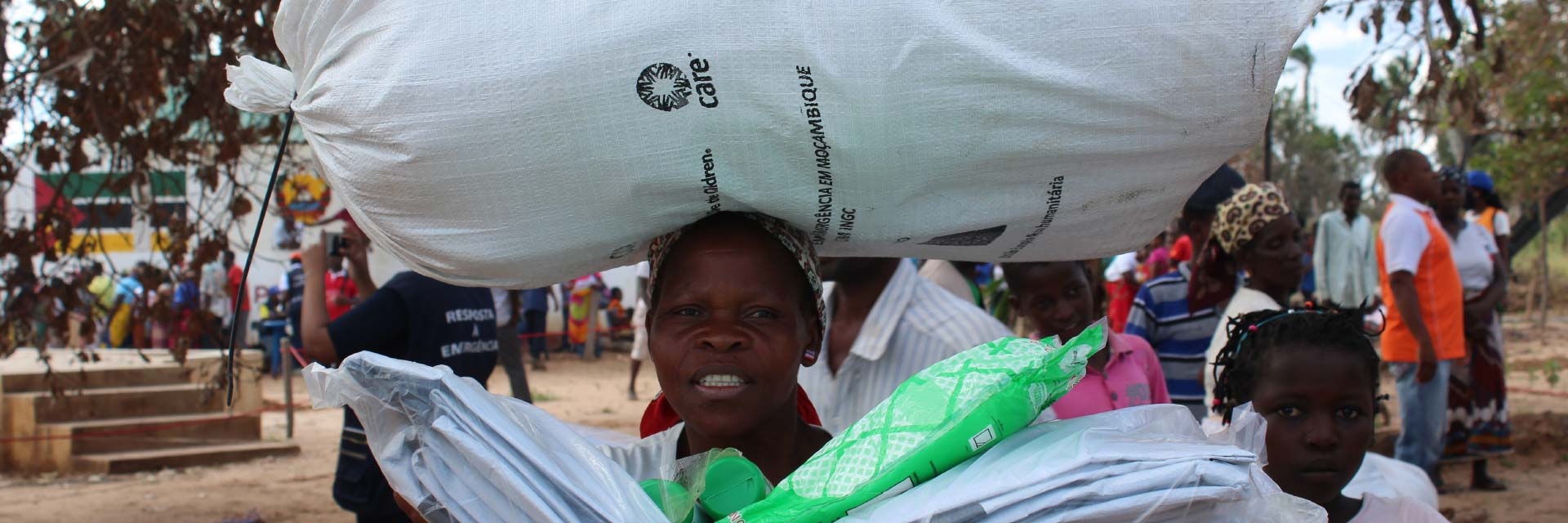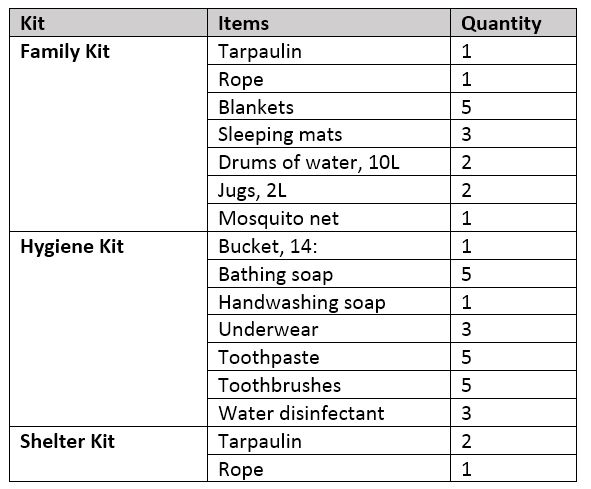
Maria Massingue received emergency items including tarpaulins, blankets and mosquito nets from CARE after Cyclone Dineo caused widespread destruction in Mozambique. Photo: CARE/Adérito Bié
How the little things save lives following disasters
Around 6,750 families lost everything to the cyclone, including their houses and agricultural crops, their only sources of income. Families affected by Cyclone Dineo in Mozambique received one or more kits designed for specific needs.
Cyclone Dineo, which hit Mozambique in February 2017, affected more than half a million people.
With winds reaching up to 160 km/h, the storm killed at least nine people and destroyed close to 60,000 homes, 70 health units and 1,600 classrooms.
Humanitarian Coalition member agency CARE, already on the ground, quickly assessed the situation to determine the areas of greatest need that weren’t being met. 
With funding from the Canadian Humanitarian Assistance Fund, CARE delivered emergency supplies to approximately 6,750 of the most vulnerable people, including Raimundo Joch.
“I watched (my roof) fly and my neighbors rescued me that night,” says 79-year-old Raimundo, who like thousands of others was left contemplating the damage and wondering how he was going to recover. “It was devastating to find my house completely destroyed. Everything was wiped out and scattered all over the place. I lost everything I had, but it wasn’t only me. Everyone in my community was affected.”
Families received one or more kits designed for specific needs: a family kit, a hygiene kit and a shelter kit. These kits contain basic tools but combined to ensure survivors have what they need to recover. These allowed residents to rebuild their homes, replace lost or damaged belongings and prevent the spread of disease. CARE also initiated the rehabilitation of health centers in two districts to meet the needs of the most affected communities.
Raimundo says he greatly appreciated the assistance he received because he was able to fix his home. “I feel I have my dignity back. My house is covered again and I am protected from the cold and mosquitos. I believe in God and in miracles, but one thing I believe in more, after this cyclone, is people’s humanity.”